Guide to Buying a Camera - Tips from a Professional Nature Photographer
Hello Everyone! I hope things are well and that you are getting ready for the holiday season. :-)
Today I’m posting something different to my images. People usually ask me for advice on buying a camera, and considering that the holiday season is around the corner (as well as good sales) I thought this would be a good post to share and will help you in buying a camera.
But first a disclaimer: I’m not sponsored by anyone, I’m sharing my point of view based on my experience ;-)
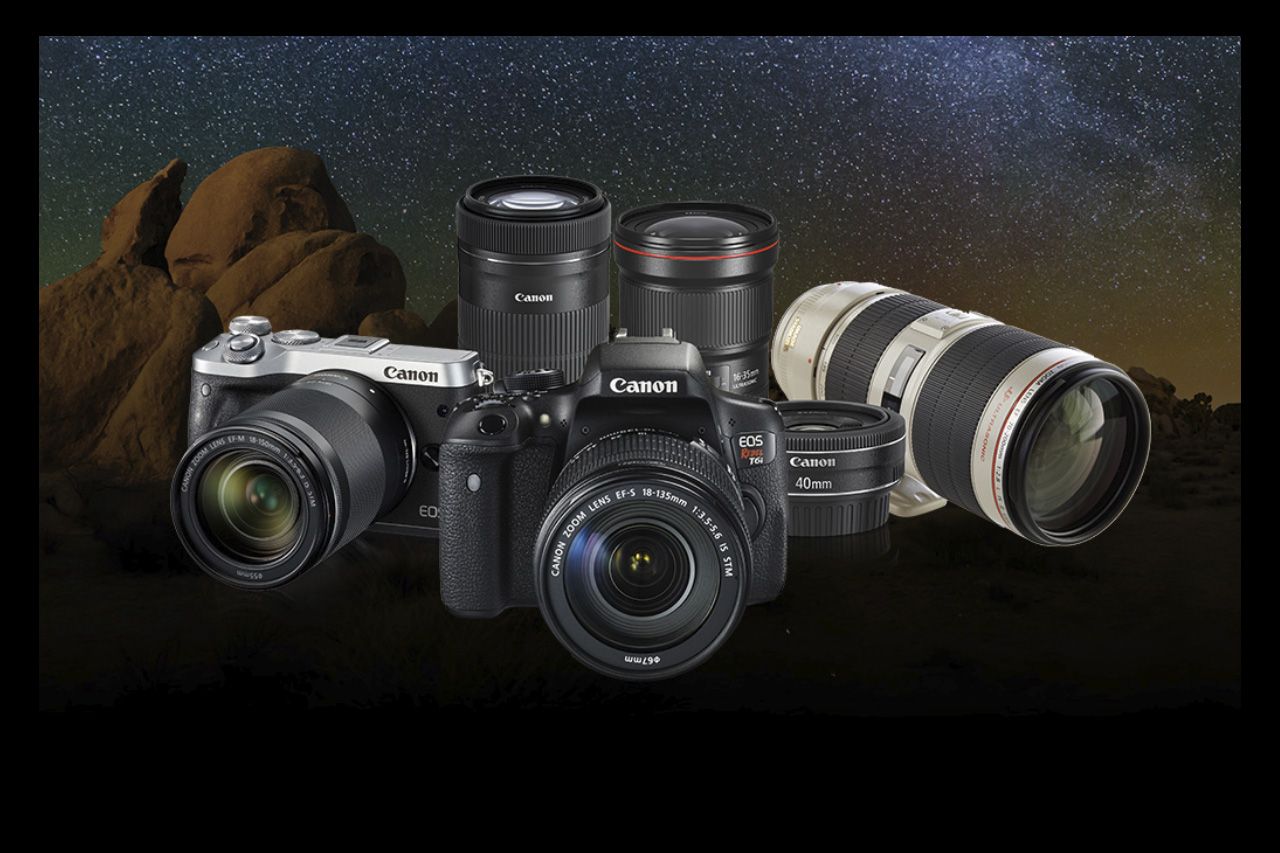
Ok, to start, these are the questions I recommend answering to make your decision. I will also share what I’ve done since I started photography as a hobby until buying the equipment I own today.
1. What will you use your camera for?
I know you will be taking pictures, duh! What I mean is if you want to do landscapes, wildlife, portraits, events, indoor, outdoor, sports, or any-other-kind-of photography. It could be that right now you only want to try out photography, so in this case you just need a standard all purpose camera. But if you want to do something more specialized, then you may want to do some homework and understand the key features you need in a camera for the specific kinds of photography you are interested in.
2. What will be the final use use of your images?
Are you going to print them? If yes, how large? Perhaps you only want them for social media and emails. Maybe you want both things and you want to save your images with a decent quality to print them in a larger format in the future. The reason this is important is because the larger the print, the better quality you need in your image which means you need a very good lens and a very good sensor (and very good skills). Also you might need to learn how to use a tripod for maximum sharpness to reduce vibrations.
3. What is your current photography skills level and do you want to improve?
Perhaps this is the most important question. If you are brand new to photography and you only want to snap some shots here and there and don’t really want to improve, theeeeeeeeeen any camera you buy will be good enough. Focus on something very simple to use and as automatic as possible. If you want to learn about photography and you want to get better but aren’t too sure how serious of a hobby this will be, theeeeeeeeen start with a basic “entry-level” camera that will let you play with the different settings and learn how they affect your images.
4. What is your budget?
Oh yes…. budget! Don’t think that you have to buy something expensive and please don’t go buy something you can’t afford. Stay away from debt! ;-)
You will likely find multiple options in different price ranges, try to stay with what you need and what you are looking for. A more complex, more sophisticated and more expensive camera does not mean you will get better pictures. Of course good equipment helps but the difference is in the photographer!
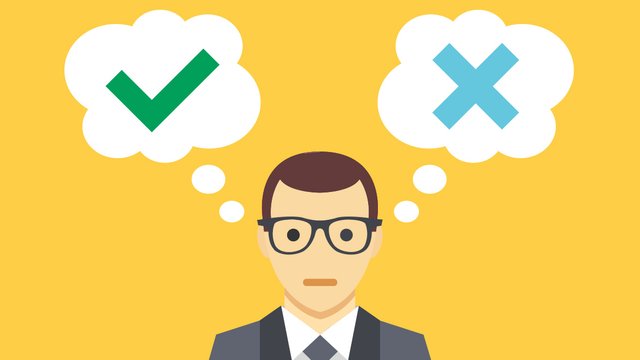
Now let’s look at the main different cameras you can find and need to choose from.
Point-and-Shoots
If you are not looking for something specific and just want to snap some images here and there to post them on social media, this is the type of camera you want. It will have limited manual settings that still can help you learn and understand the basics of photography. Read the reviews, try to hold the camera to see how it feels and test it a bit.
Main Characteristics
- Most basic type of camera
- General use
- Easy to use but somewhat limited
- Easy to carry since it’s compact and light
What to look for in general
- Large sensor (the larger the sensor the better)
- Image stabilization to help you reduce movement when shooting at lower speeds and/or lower light conditions
- Large LCD viewscreen to help you see better (avoid tilting ones, moving parts tend to fail)
Other advanced features
- Optical zoom to take images of subjects far away (avoid digital zoom, always prioritize optical zoom over digital zoom)
- Good lens (read the reviews)
- Viewfinder (optical preferably)
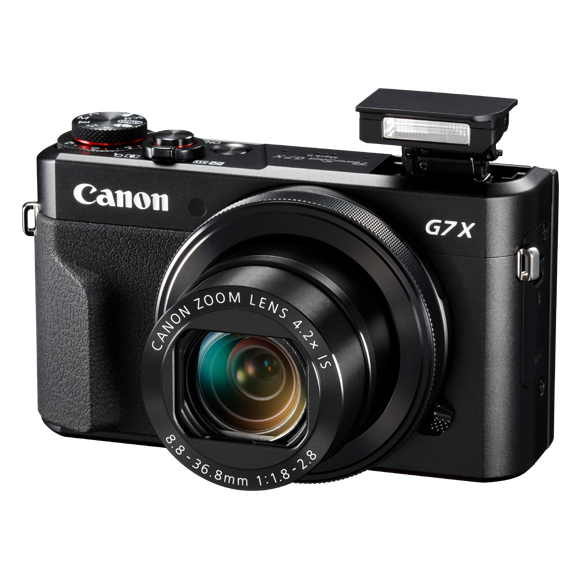
Source: Canon Canada
SLRs (Single Lens Reflex)
This type of camera is the one I would recommend for anyone interested in taking photography as a more serious hobby. You will have a lot more manual controls, ability to change lenses, and you can shoot in RAW format to post-process your image in your computer using software like Lightroom or Photoshop. (BTW ALWAYS shoot RAW ;-))
Main Characteristics
- Lots of flexibility with manual controls
- Very adaptable to different kinds of photography
- Can use different lenses depending on what you want to photograph
- You need to learn how to use it (please don’t buy it to use it in Auto :-)
- Bulkier and heavier, making it a bit more difficult to carry. Especially if you have different lenses
What to look for in general
- Large sensor (the larger the sensor the better)
- Large LCD viewscreen to help you see better your image previews, histograms, etc. (avoid tilting ones, moving parts tend to fail)
- Lenses with image stabilization to help you reduce movement when shooting at lower speeds and/or lower light conditions
- Good quality and sharp lenses as part of your kit (read reviews)
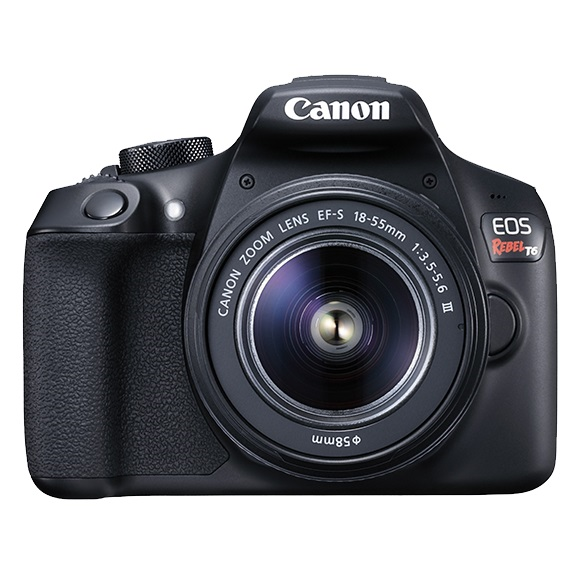
Source: Canon Canada
Mirrorless
I won’t get too detailed here, but in general I would recommend a mirrorless camera if you like the features of the SLRs with the look/feel/weight of the Point-and-Shoots. I have had conversations with other professional photographers (mostly wedding and people photography) who would like to switch to mirrorless just because of the weight difference. If you are out on the field like me, you may want a more sturdy and tough camera like an SLR.
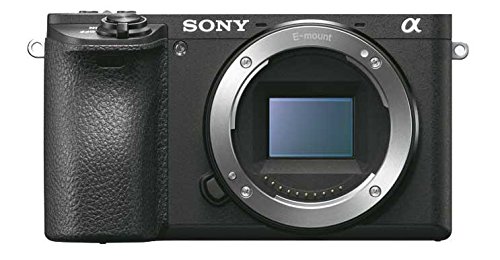
Alright, now let me tell you what I did and what I recommend if you want to take photography as a serious hobby. I will share the answers I wrote when I completed this exercise when I started so here we go!
What will I use my camera for?
Landscape and wildlife photography.
What will be the final use use of my images?
Web and for sharing with others. I don’t think I will print them.
What is my current photography skills level and do I want to improve?
I’m a beginner and I would like to learn more basics.
What is my budget?
Not too expensive and not too cheap. Something in the middle that is functional and practical to help me “dip my toes” in photography.
With this information, I decided to buy a “more sophisticated” point-and-shoot. My first camera was a Canon PowerShot with a larger than average sensor, good optical zoom and image stabilization. I mostly used the defined presets it had depending on what I was shooting. I had a great experience learning how to use it and it was fun to snap pictures here and there. As a result of this experience I really liked photography and moved to a “second level”. (By the way, my Dad still has this camera :-))
I wanted to learn more about photography and I wanted more flexibility. So my second camera was an entry-level (basic) SLR with two lenses. A wider lens for landscapes and a zoom lens for wildlife. It was a Canon EOS Rebel which I still have. Something important here is that I decided to go with the least expensive SLR. My main goal was to learn and practice. This experience helped me moved to the “third level”.
This “third level” is the current level I’m at. I was confident about my passion for photography and that I wanted it to be more than a hobby. I decided to buy a Canon EOS 6D which is considered an “advanced” camera. It has a full frame sensor, the reviews were excellent about the quality of the images which will let me print them in larger formats and it has great ISO sensitivity (low noise under low light conditions with high ISO values). For this camera I have different lenses, including a couple of Canon from the L series which are the professional lenses.
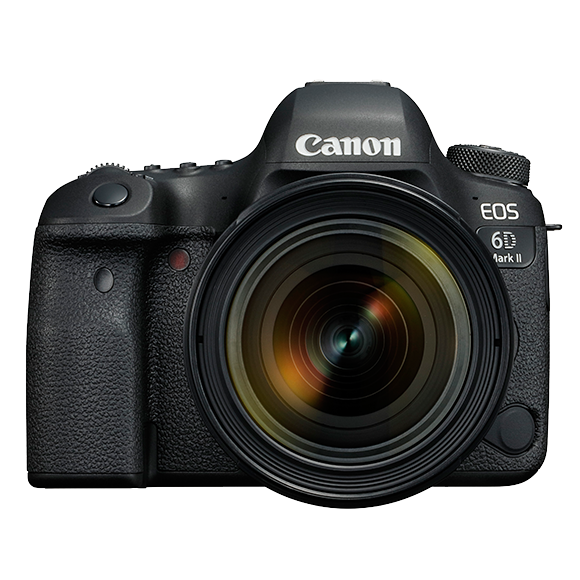
Final Thoughts
Ok, time to wrap up this post and see what questions you might have.
Selecting a camera will depend on what you want to do. Always start by trying to understand how you plan to use it. The questions I have shared will help you a lot in your decision.
It doesn’t matter how expensive or good your camera is. The best results will come from learning how to use it. It is the photographer, not the camera!
Besides learning how to use your camera, you may want to spend some time learning about photography. The more you understand the basics, the easier it will be to learn to use the different features your camera has. This will also help you to capture better images.
Get a simple point-and-shoot for sharing images on the web and if you just want to occasionally photograph your adventures. If you want something a bit more advanced to learn, then buy a “sophisticated” point-and-shoot.
An entry-level SRL is the “best bang for your buck” if you want to learn about photography and determine if you want to take it as a serious hobby. Get an “advanced” SLR if you are really into photography and have decent skills. Get a mirrorless camera if weight and transportability is something you value.
Cameras come and go, they are constantly being replaced by newer versions. Once you realize this is a serious hobby, invest in good lenses which you can keep and use in a newer camera body.
If you are serious about this hobby, learn to post process your RAW images using software like Lightroom and Photoshop. This is extremely important in digital photography to develop your images.
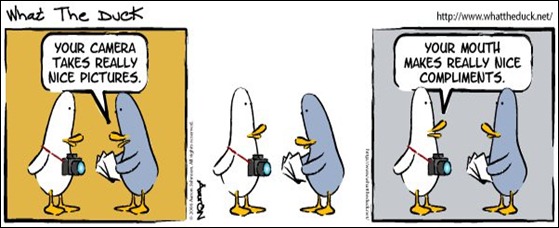
Source: What the Duck
Thanks! Feel free to write any questions and comments, I’m more than happy to help you. :-)
For inspiring images and fine art prints, please visit my website.
http://www.photosbymoa.com/
Very thoughtfully written! It reminds me of my friend who's buying a Canon EOS1300D. I don't know how it's going but he wrote an article for it. Please check it out. Thanks!
Will do. Thanks!
Well, I read the article and we have different points of view which is ok. In my humble opinion buying a DSRL doesn't make you a good photographer. Of course good equipment helps, but only if you know what you are doing with it. Spending money in a "pro" or "advanced" camera as a first step is not the best approach. Investing in your knowledge is money well spent. I guarantee most professional photographers will tell you to pay for workshops, classes and do a lot of research. And of course, practice practice practice! ;-)
Thank you, good information.
Glad you liked it!
Very informative post for someone who wants to buy a camera but doesn't know how to start (or even someone a little advanced). I know that I was in the same position as described when looking for a camera.... or pretty much any gadget. I'm resteeming this post :D
Thanks @cobmaximus!
Very nice, thanks
Maybe it could be improved with some table? More visual and easier to read/skim
Thanks @julian1337! I will consider your feedback for a future post.
Thank you for this thorough article. Great information for gift buyers as well as for those who are interested in embarking on the photography voyage past their cell phones.
You are welcome @ohjinbushi! That's what I thought; it could help for gift purposes as well as for yourself.
If anyone can just help me with the best camera with great resolution and also handy???
Hi @arpit-latest, what do you mean by "handy"? Trying to find the "best camera" is subjective and will depend on how you plan to use it. You can check a few of the links I shared to different cameras.
You forgot to mention that you should consider the max f-stop value of the lens you are buying. That's a pretty important consideration when buying glass.
Hi @markangeltrueman! Sorry for responding until now, I was on vacation and traveling for 4 weeks. :-)
You are right about the importance of the aperture of your lens, however that will vary depending on what you will be shooting. For example, for landscape photography you will use high f values (like f/16), while for night photography you need very low f values like f/2.8. I might write a different article talking about lenses and how to pick one depending on what you will be photographing. Thanks for the recommendation!
Thanks for the recommendations, come in handy.
You are very welcome @lilia737! Glad you find it useful.
Great howto Max! This is as always great content! Now I want a camera too ;_; Thanks for sharing! @OriginalWorks
Thanks @cpol! You can always contact me if you have any questions!
Sudah di uptove